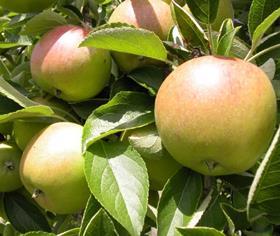
State government agriculture groups from across Australia have joined forces with New Zealand’s Plant & Food Research to establish a A$12m research and development programme to boost productivity and efficiency levels in Australia’s apple and pear industry.
The project – Production, Irrigation, Pests and Soils (PIPS) – represents a collaboration between the Tasmanian Institute of Agricultural Research (TIAR), the departments of primary industries in Tasmania, Queensland and Victoria and New Zealand's Plant & Food Research. TIAR is also playing a project management role.
“PIPS is about improving the productivity of Australian orchards,” Tony Russell, GM of Apple and Pear Australia Limited (APAL), told Fruitnet.com. “It will cover a range of areas, including tree management, orchard structures, soil and nutrition, pest control, integrated pest management and water usage.
“The nub of the project is that these organisations are taking a large swag of their research and development funds and integrating them into one focus area, one managed scheme,” he continued. “It’s a serious project in which we’re jointly investing A$12m over the next five years.”
The joint investment from the respective research organisations is also underpinned by Horticulture Australia Limited’s (HAL) apple and pear levies.
PIPS follows on from the Future Orchards project, which is focused on doubling the productivity of Australian orchards through intensively-planted orchards using dwarfing rootstocks, but Mr Russell pointed out that PIPS charts new territory. “Future Orchards is based on known technologies and systems whereas PIPS is about addressing new tree management and orchard structures relevant to Australian conditions and about new research into soil nutrition, water and pest management,” he told Fruitnet.com.
Australia’s pomefruit productivity levels have lagged over the past decade as the industry has retreated from exports to focus on its domestic market, but Mr Russell said PIPS marks a vital step towards engineering a turnaround.
“We have to do this to become globally competitive as we’re going to face apple imports into Australia at some stage in the future,” said Mr Russell. “It won’t be an easy process, and this is a long-term project, but importantly the R&D requirement has been well recognised and we now have an integrated project of real substance.”
PIPS is set for its official launch at the beginning of September pending approval by HAL.






No comments yet